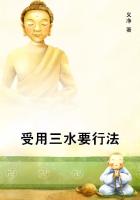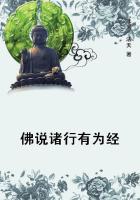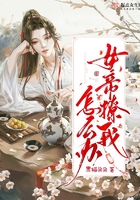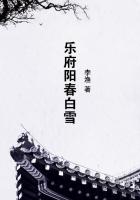The book rang with the courage alike of conviction and of an entire absence of conviction; it appeared to be the work of men who had a rule-of-thumb way of steering between iconoclasm on the one hand and credulity on the other; who cut Gordian knots as a matter of course when it suited their convenience; who shrank from no conclusion in theory, nor from any want of logic in practice so long as they were illogical of malice prepense, and for what they held to be sufficient reason. The conclusions were conservative, quietistic, comforting. The arguments by which they were reached were taken from the most advanced writers of the day. All that these people contended for was granted them, but the fruits of victory were for the most part handed over to those already in possession.
Perhaps the passage which attracted most attention in the book was one from the essay on the various marriage systems of the world. It ran:-"If people require us to construct," exclaimed the writer, "we set good breeding as the corner-stone of our edifice. We would have it ever present consciously or unconsciously in the minds of all as the central faith in which they should live and move and have their being, as the touchstone of all things whereby they may be known as good or evil according as they make for good breeding or against it."
"That a man should have been bred well and breed others well; that his figure, head, hands, feet, voice, manner and clothes should carry conviction upon this point, so that no one can look at him without seeing that he has come of good stock and is likely to throw good stock himself, this is the desiderandum. And the same with a woman. The greatest number of these well-bred men and women, and the greatest happiness of these well-bred men and women, this is the highest good; towards this all government, all social conventions, all art, literature and science should directly or indirectly tend.
Holy men and holy women are those who keep this unconsciously in view at all times whether of work or pastime."
If Ernest had published this work in his own name I should think it would have fallen stillborn from the press, but the form he had chosen was calculated at that time to arouse curiosity, and as I have said he had wickedly dropped a few hints which the reviewers did not think anyone would have been impudent enough to do if he were not a bishop, or at any rate some one in authority. A well- known judge was spoken of as being another of the writers, and the idea spread ere long that six or seven of the leading bishops and judges had laid their heads together to produce a volume, which should at once outbid "Essays and Reviews" and counteract the influence of that then still famous work.
Reviewers are men of like passions with ourselves, and with them as with everyone else omne ignotum pro magnifico. The book was really an able one and abounded with humour, just satire, and good sense.
It struck a new note and the speculation which for some time was rife concerning its authorship made many turn to it who would never have looked at it otherwise. One of the most gushing weeklies had a fit over it, and declared it to be the finest thing that had been done since the "Provincial Letters" of Pascal. Once a month or so that weekly always found some picture which was the finest that had been done since the old masters, or some satire that was the finest that had appeared since Swift or some something which was incomparably the finest that had appeared since something else. If Ernest had put his name to the book, and the writer had known that it was by a nobody, he would doubtless have written in a very different strain. Reviewers like to think that for aught they know they are patting a Duke or even a Prince of the blood upon the back, and lay it on thick till they find they have been only praising Brown, Jones or Robinson. Then they are disappointed, and as a general rule will pay Brown, Jones or Robinson out.
Ernest was not so much up to the ropes of the literary world as I was, and I am afraid his head was a little turned when he woke up one morning to find himself famous. He was Christina's son, and perhaps would not have been able to do what he had done if he was not capable of occasional undue elation. Ere long, however, he found out all about it, and settled quietly down to write a series of books, in which he insisted on saying things which no one else would say even if they could, or could even if they would.
He has got himself a bad literary character. I said to him laughingly one day that he was like the man in the last century of whom it was said that nothing but such a character could keep down such parts.
He laughed and said he would rather be like that than like a modern writer or two whom he could name, whose parts were so poor that they could be kept up by nothing but by such a character.
I remember soon after one of these books was published I happened to meet Mrs Jupp to whom, by the way, Ernest made a small weekly allowance. It was at Ernest's chambers, and for some reason we were left alone for a few minutes. I said to her: "Mr Pontifex has written another book, Mrs Jupp."
"Lor' now," said she, "has he really? Dear gentleman! Is it about love?" And the old sinner threw up a wicked sheep's eye glance at me from under her aged eyelids. I forget what there was in my reply which provoked it--probably nothing--but she went rattling on at full speed to the effect that Bell had given her a ticket for the opera, "So, of course," she said, "I went. I didn't understand one word of it, for it was all French, but I saw their legs. Oh dear, oh dear! I'm afraid I shan't be here much longer, and when dear Mr Pontifex sees me in my coffin he'll say, 'Poor old Jupp, she'll never talk broad any more'; but bless you I'm not so old as all that, and I'm taking lessons in dancing."
At this moment Ernest came in and the conversation was changed. Mrs Jupp asked if he was still going on writing more books now that this one was done. "Of course I am," he answered, "I'm always writing books; here is the manuscript of my next;" and he showed her a heap of paper.
"Well now," she exclaimed, "dear, dear me, and is that manuscript?
I've often heard talk about manuscripts, but I never thought I should live to see some myself. Well! well! So that is really manuscript?"
There were a few geraniums in the window and they did not look well.
Ernest asked Mrs Jupp if she understood flowers. "I understand the language of flowers," she said, with one of her most bewitching leers, and on this we sent her off till she should choose to honour us with another visit, which she knows she is privileged from time to time to do, for Ernest likes her.

